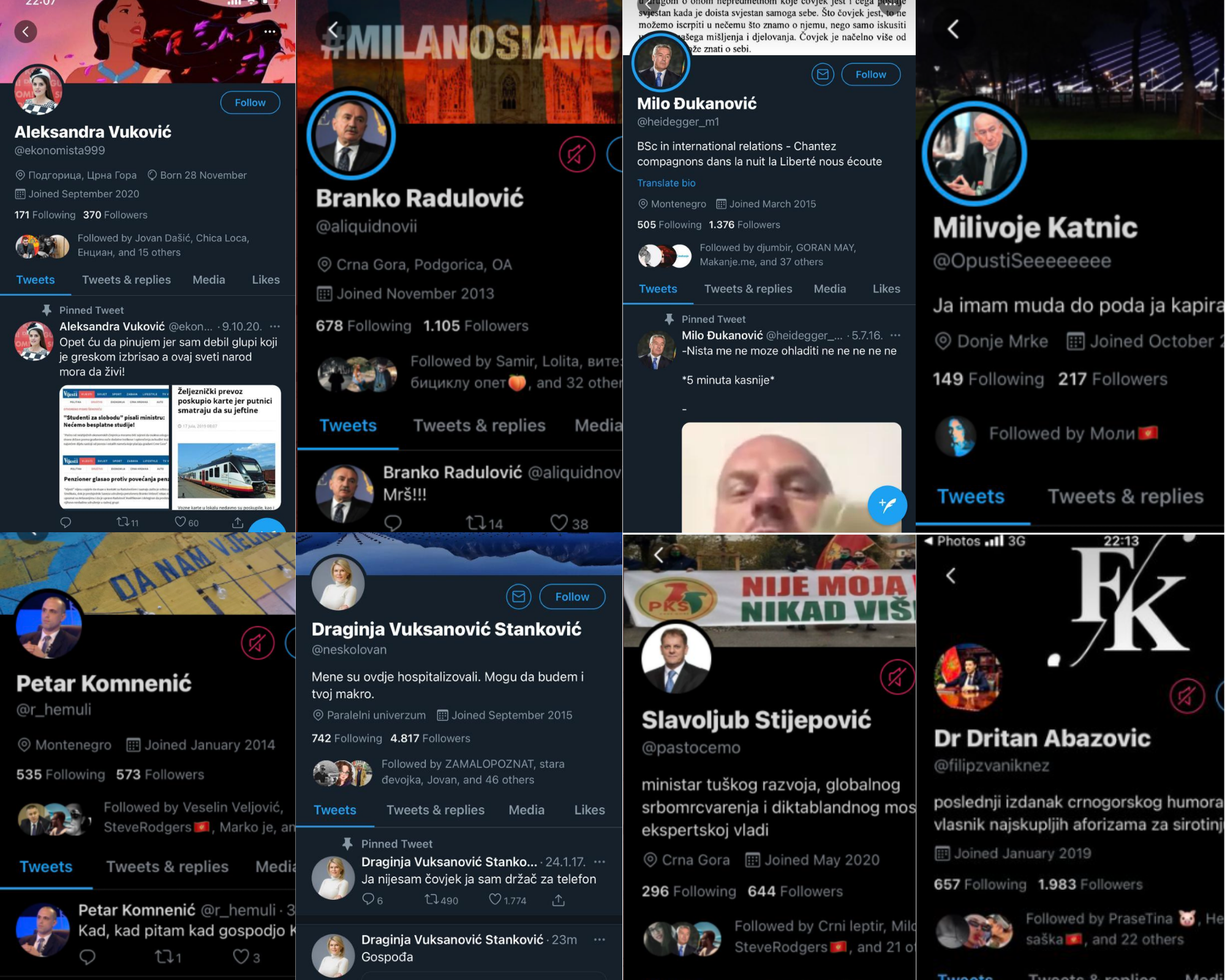Late last night, the DFC revealed at least 50 Twitter accounts, which impersonated and thus damaged the reputation of several public and political figures in Montenegro.
The activities of these accounts were coordinated and synchronized, considering that in a very short space of time they changed their username and profile photo to those of public figures and officials including Dritan Abazovic, Momo Koprivica, Branko Radulovic, Marko Milacic, Milo Djukanovic, Milivoje Katnic, Petar Komnenic, Draginja Vuksanovic Stankovic and many others. Apart from impersonating the accounts, they also shared inappropriate content. Besides, many Twitter users did not realize that those were not the official accounts of public figures and engaged in a discussion with them.
Considering the short period and a large number of accounts, and their mutual interaction, it becomes evident that the action was not spontaneous, but organized and synchronized. At this moment, we cannot reveal any further details on who is standing behind the profiles and the coordination or its goal, as not to compromise our investigation.
The Twitter Rules clearly say that impersonation represents a violation of this platform’s Rules. Twitter accounts that pose as another person, brand, or organization in a confusing or deceptive manner may be permanently suspended under Twitter’s impersonation policy.
Yet, there are exceptions when such accounts will not be removed, i.e. when they are not in violation of the Rules. They are the following:
The user shares one’s name but has no other commonalities (which is now not the case. They used the public figures’ names and photos, shared their opinions, and engaged in a discussion with other persons.)
The profile clearly states that it is not affiliated with or connected to any similarly-named individuals or brands. That goes for the following cases:
- The account name (note: this is separate from the username, or @handle) should clearly indicate that the user is not affiliated with the subject of the account. Non-affiliation can be indicated by incorporating, for example, words such as (but not limited to) parody, fake, or fan.
- The bio should clearly indicate that the user is not affiliated with the subject of the account. Non-affiliation can be indicated by incorporating, for example, words such as (but not limited to) parody, fake, or fan.
One of the most popular accounts of this kind is Parody Boris Johnson with 145,000 followers, using the identical name and photo as the British Prime Minister, but visibly and clearly indicating, as required by the Rules, that it is a parody account.
Whether it is mere entertainment, how one part of the public feels, or something else, it is not without the reason that social media take impersonation very seriously and impose rigorous measures on this sensitive issue.
Nevertheless, what one person finds amusing may represent a serious problem to another, damage their reputation and honor, and create inconvenient situations.

